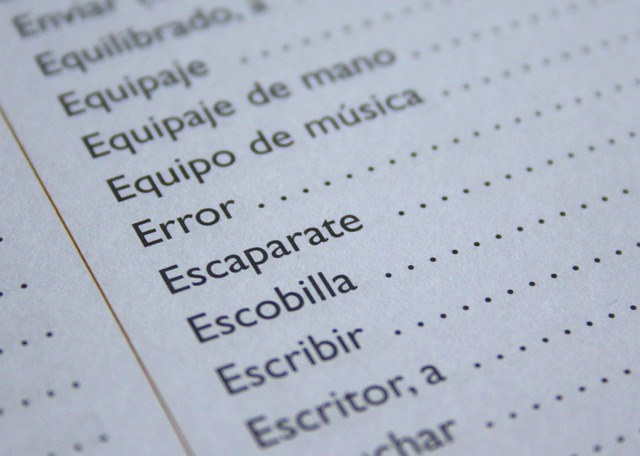Rapid Translate Team
Becoming a professional translator can be quite a task. While there is a high demand for translators in different languages, Spanish is one of the on-demand languages. So, you may wonder how to become a Spanish translator.
To become a Spanish translator, you must first master the language to a high level. Then, you must earn a relevant degree or diploma and a relevant certification. Experience is another critical factor in this field.
Many professionals start by offering translation services Spanish to English, as it is one of the most in-demand language pairs in business, legal, and immigration contexts. Mastering this translation skill can open doors to numerous job opportunities in various industries.
So, if you want to become a pro, this article is for you.

Table of Contents
How To Become a Certified Spanish Translator
The demand for Spanish translators has grown recently, partly due to the increase in migration. For this reason, there are questions about how to become a certified Spanish translator. While there is no straight way, here are the most helpful steps to take:
1. Gain Fluency in Spanish
Although essential, becoming fluent in Spanish and another language is the first step toward becoming a certified Spanish translator. In the ideal sense, you may have to study the language from High School to become proficient.
However, some people learn the language later on in life and still succeed in the field. Luckily, there are several resources and helpful ways to learn Spanish effectively to a high level of proficiency. Both online and physical resources provide a great way to learn the language.
For others, growing up in a bilingual setting allows them to learn the language informally. While these people have a headstart and an added advantage, additional studies are often necessary. Learning Spanish as a foreign language is possible but requires some work.
Spending time in a Spanish-speaking country also helps improve your language skills. Ultimately, the goal is to be fluent enough to translate the language. Besides that, you must also understand syntax, grammar, and word usage in the target language and source language.
2. Earn a Bachelor’s Degree
A bachelor’s degree is not compulsory. However, it is vital if you’re trying to become a certified translator in Spanish. Most employees and clients prefer to work with translators with these degrees. In this case, there are multiple degree options to consider.
For instance, you can get a degree in translation, Spanish, or linguistics. You can also get some combined interpretation and translation degrees from some universities. Other universities have language, translation, and literature degrees and master’s degrees.
3. Choose an Area of Specialization
Choosing an area of specialization is not always compulsory, but it can be helpful. Focusing on a specific area can aid mastery, helping you provide better services and attract better-paying opportunities.
There are multiple areas of specialization to choose from as a Spanish translator; they include:
- Technical translation.
- Legal translation.
- Medical translation.
- Marketing translation.
- Intellectual translation.
- Literary translation.
- Tourism and tourism translation.
Also, an extra degree in any of these fields can be advantageous if you’re a Spanish translator. While not compulsory, consider this alternative if you can.
4. Get Language Training
Proper and relevant training and a bachelor’s degree are often essential. Upgrading your skills in this regard is easy. Take online and physical courses and attend workshops.
Luckily, you can take several online courses in different areas of expertise. For example, Udemy offers multiple options that you may find helpful. These range from practical courses to specialized courses in the Spanish language.
5. Gain Experience
As an aspiring Spanish translator, you must have the necessary experience in the field. In fact, moving straight into the market with no experience is not usually the best option. While experience helps to upgrade your skills, it also makes you more attractive to potential clients and customers.
Chasing valuable experience during your undergraduate degree is a helpful option. For instance, internships and volunteer programs help you get experience. You can also practice with Spanish documents that you’ll find online.
As the most common type, consider focusing on English-to-Spanish translation services or Spanish-to-English services. This experience will add to your portfolio and help you learn to minimize risks during your translations.
6. Obtain a Relevant Certification
A valid certification is one of the most important aspects of becoming a certified translator of the Spanish language. To become one, you must prove your proficiency in the language and the capacity to provide correct translations.
While the requirements vary in different countries, only governmental and professional organizations issue these certifications in the U.S. For instance, the American Translators Association (ATA) issues one of the most recognized certifications in the country.
While certification is not mandatory for Spanish translators, it is a significant addition. It helps you to stand out from the rest of the bunch. It also indicates your commitment to the field. While simple, a certification promotes more trust among customers and clients, showing you can offer a proper translation.

How To Become a Spanish Translator Without a Degree
Getting a degree is one of the most straightforward ways of becoming a Spanish interpreter or translator. However, some aspiring translators do not have the luxury of bagging one. For this reason, there are many questions about how to become a Spanish translator without a degree.
Although some employers prefer translators who have degrees, it is not always necessary. A High School diploma or a General Educational Development (GED) certificate is the minimum requirement for translators.
Coupled with any of these, an excellent control of Spanish and another language is enough.
Here, it helps better if you’re a native speaker of the language or you learned it to a high level of fluency. In addition to that, you must also have the necessary experience, having learned the skill.
Relevant training courses and certifications also count in this case. Completing these courses and other non-degree programs is a great way to gain an edge in the industry. As a Spanish translator, getting certifications from the ATA and other relevant organizations is as useful as a degree.
Translation skills are the most critical factors in becoming a professional. That is why native speakers have an edge in translating Spanish and other languages. For this reason, pay better attention to upgrading your skills.

Do You Need Spanish Translation Services? Go for Rapid Translate
Do you need accurate and reliable Spanish translation services? Rapid Translate is your best bet when it comes to accuracy and timeliness. The translation agency offers services that cover over 60 other languages as well.
Rapid Translate offers one of the fastest turnaround times, at 24 hours. While it charges only $27.99 per page for its translations, the company provides 24/7 customer support. You can get certified medical, business, and legal translations.
If you need Spanish translations, you may sometimes need a Spanish notary. The agency then offers rushed mail options, where you can fast-track your order by paying extra. Rapid Translate provides services that align with multiple immigration agencies.Now that you’ve understood how to become a Spanish translator, the translation company helps you upgrade your communication capabilities. It offers translations for different purposes, including international business operations, education, and travel. Order now to get fast and reliable translations!





